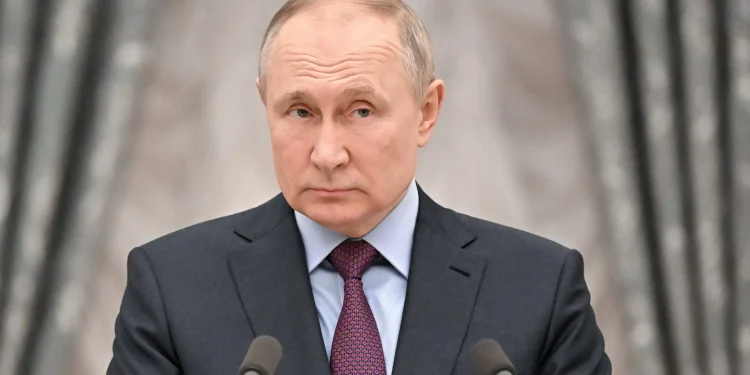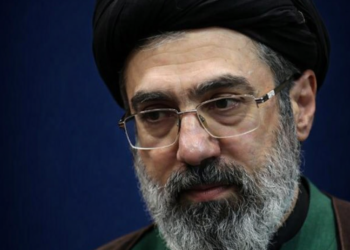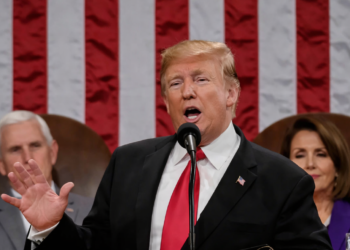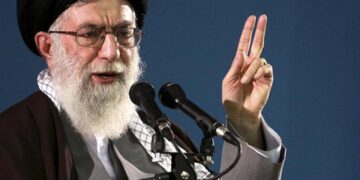Rutte confidently declared that Russian President Vladimir Putin is “out of moves,” suggesting that Moscow’s power and strategy are running on fumes. Coming from the NATO boss himself, this was more than just a political jab, it was a statement meant to sting.
Rutte’s Confident Claim
Mark Rutte, now leading the NATO alliance, told reporters that the new sanctions imposed by the United States on Russia are tightening the noose around the Kremlin. According to him, the pressure is finally showing. “Our support to Ukraine is working,” Rutte said, as he hinted that Putin’s forces are stretched thin, low on resources, and making only “marginal gains” in Ukraine. His tone was direct, almost mocking, as if he was calling Putin’s entire war strategy a tired playbook with no surprises left.
The statement came at a time when NATO has been working overtime to present a united front against Russia. Rutte’s words“Putin is out of moves” fit perfectly into that agenda. This is more like a challenge, the kind meant to irritate Moscow and remind the world that the West is not backing down.
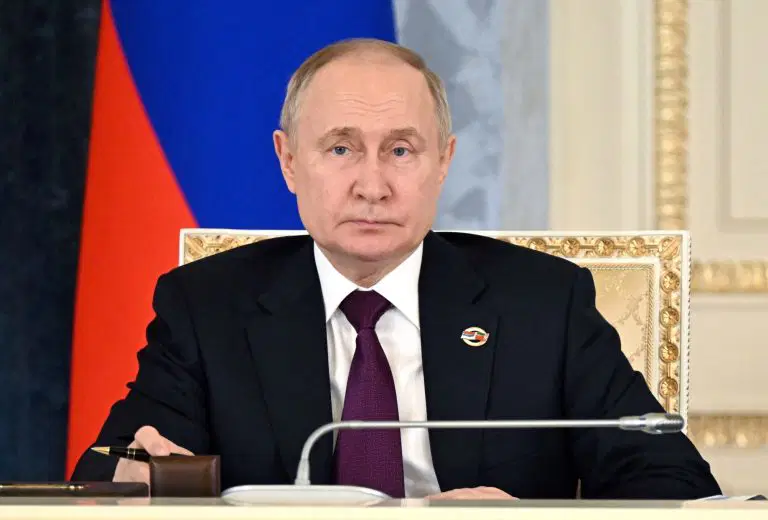
The Pressure Game
It’s no secret that the U.S. sanctions are starting to bite. Washington recently rolled out new measures against Russia’s oil and defense industries, and according to Rutte, they are working exactly as intended. Putin, he claimed, is running out of options, money, manpower, and fresh ideas. The once-fearsome Russian war machine is reportedly feeling the heat.
Rutte’s choice of words was sharp and strategic. By saying Putin is “out of moves,” he paints the Russian president as a desperate chess player who has run out of smart plays. It’s psychological warfare, simple but effective. The message is not just for Russia, but for NATO allies and Ukraine itself: that the West is gaining ground, and Russia is beginning to stumble.
Visiting the Frontline of Support
Rutte made his comments while visiting the multinational NATO battle group in Bulgaria. Standing among soldiers and military vehicles, he looked every bit the confident commander of an alliance determined to hold its ground. His next stop was London, where he joined leaders of the so-called “Coalition of the Willing” a circle of countries providing direct military and financial aid to Ukraine.
The symbolism was obvious. As Rutte spoke of Putin’s limits, he was surrounded by evidence of NATO’s growing unity. That image alone said a lot: NATO isn’t just defending Europe, it’s reminding Russia that the alliance is watching every move, and it believes Moscow has no more good ones left to play.
The Kremlin’s Embarrassment
If there’s one thing Putin hates, it’s being portrayed as weak. Rutte’s remarks were not just analysis, they were provocation. For a man like Putin, whose power depends heavily on the illusion of control, being told he’s “out of moves” is a direct insult. It makes him look cornered, predictable, and desperate, three things no authoritarian leader wants to be called.
And yet, there’s a ring of truth to it. Russia’s economy continues to strain under sanctions. Its troops are struggling for real victories in Ukraine. Even its political allies are starting to show fatigue. So when Rutte made that statement, he wasn’t just mocking Putin, he was reading out loud what many already whisper behind closed doors, that Russia’s once-feared aggression has become a tired performance.
The War of Words
This isn’t the first time NATO leaders have used words as weapons. Over the past two years, speeches, press statements, and diplomatic jabs have been as important as military moves. Rutte’s comment, “Putin is out of moves,” is the latest strike in that ongoing information war. It’s designed to weaken morale within Russia and boost confidence in the West.
And in some ways, it’s working. Ukrainians hear those words and see them as encouragement, that their allies still believe in victory. Russians, on the other hand, hear it and are reminded that even the head of NATO believes their leader has lost control of the board.
A Calculated Taunt
Rutte’s statement is not just about Ukraine or Russia, it’s about positioning NATO under his leadership. He wants to show strength, to prove that the alliance under his watch won’t be timid. Saying Putin is out of moves achieves that perfectly.
But it also carries a risk. Moscow is not known for staying silent when mocked. Putin may try to respond with his own version of a “move,” even if just to prove Rutte wrong. That could mean military escalation, new propaganda campaigns, or symbolic gestures meant to show defiance.
The Uncomfortable Truth
Still, Rutte might be right. After years of fighting, Putin’s war seems trapped in a loop, attacks, retreats, sanctions, and speeches. Nothing feels new anymore. Russia has already used up most of its strong cards: energy blackmail, military intimidation, and cyber threats. What’s left may not be enough to turn the tide.
That’s the real weight of Rutte’s statement. It’s not just an insult, it’s a summary of reality. The world is watching a man who once looked unstoppable slowly run out of options.
Bottom Line
By the end of his remarks, Rutte left no doubt about NATO’s position. The alliance will keep backing Ukraine “as long as it takes,” and the Kremlin, according to him, is now on the losing side of history. His taunt, Putin is out of moves, wasn’t said with anger, but with a kind of calm certainty.

